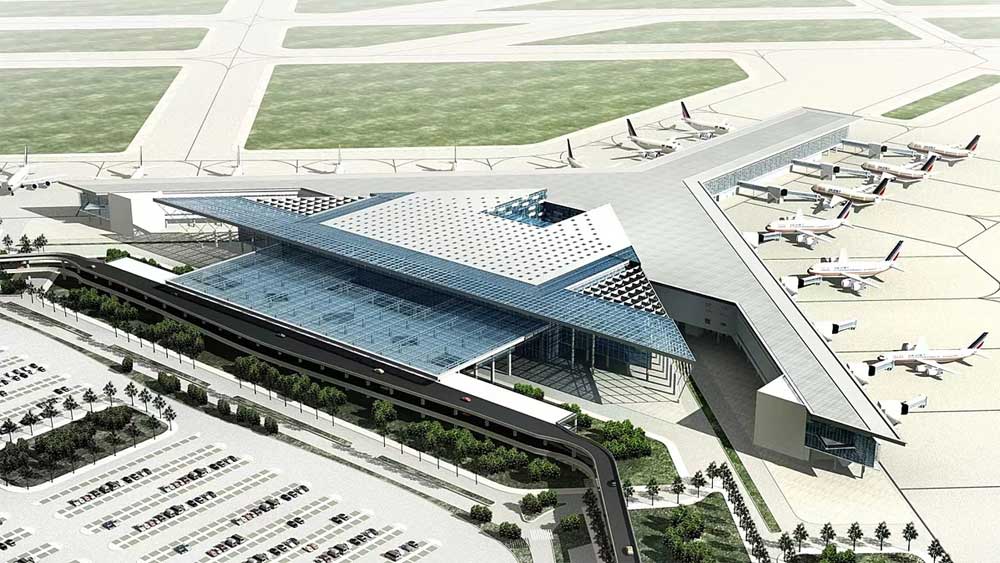
The China-Pakistan Economic Corridor (CPEC) represents a monumental collaboration between China and Pakistan, designed to enhance economic connectivity, improve infrastructure, and stimulate sustainable development in Pakistan. A cornerstone of this ambitious initiative is the China State Construction Engineering Corporation (CSCEC), which has emerged as a vital contributor to various CPEC projects. This article provides an in-depth exploration of CSCEC’s role in CPEC, focusing on major projects and their significant impact on Pakistan’s infrastructure development and economic landscape.
A Strategic Partnership
CPEC, which was officially launched in 2015, is part of China’s Belt and Road Initiative (BRI), aiming to create a modern Silk Road linking Asia with Europe and Africa. The partnership between CSCEC and the Government of Pakistan is built on a shared vision for enhancing economic prosperity through improved infrastructure. Pakistan faces numerous challenges in its infrastructure sector, including inadequate road networks, energy shortages, and urban transportation inefficiencies. CSCEC’s extensive experience in large-scale construction and its financial capabilities make it an ideal partner to tackle these challenges.
The collaboration between CSCEC and Pakistan is not just about construction; it embodies a strategic alignment of interests aimed at fostering regional stability and economic growth. As a state-owned enterprise, CSCEC has the backing of the Chinese government, allowing it to undertake massive projects that require significant investment and resources. This partnership aims to transform Pakistan’s infrastructure and economy, making it a crucial player in regional and global trade.
Major Projects by CSCEC Karachi-Baltistan Motorway
One of the most significant projects under CPEC is the Karachi-Baltistan Motorway. This ambitious infrastructure project aims to connect the bustling economic hub of Karachi with the northern regions of Pakistan, including Gilgit-Baltistan. The motorway is designed to facilitate efficient transportation of goods and people, significantly reducing travel time. By improving connectivity, the project will stimulate trade and tourism in the northern areas, which are rich in natural beauty and cultural heritage.
The Karachi-Baltistan Motorway also has the potential to reduce traffic congestion in urban areas, particularly in Karachi, which has long struggled with overcrowding and inadequate road infrastructure. The project’s design incorporates modern engineering practices and advanced technologies, ensuring safety and durability. By connecting remote areas with major urban centers, the motorway will enhance accessibility and promote regional development.
Gwadar Port Development
At the heart of CPEC lies Gwadar Port, a strategic deep-sea port located on Pakistan’s southwestern coast. CSCEC has been instrumental in the expansion and modernization of this port, which is expected to play a crucial role in establishing a maritime trade route connecting Central Asia, the Middle East, and beyond. The development of Gwadar is not just about infrastructure; it represents a vision for Pakistan to become a regional trade hub.
CSCEC’s efforts in enhancing port facilities include the construction of container terminals, warehouses, and logistical support services. By improving the operational capacity of Gwadar Port, CSCEC is facilitating increased cargo movement and attracting foreign investment. The port’s development is expected to create numerous job opportunities, both directly and indirectly, benefiting local communities and contributing to economic upliftment.
Furthermore, the establishment of Gwadar as a trade hub is anticipated to enhance Pakistan’s geopolitical significance. As trade routes shift and new opportunities arise, Gwadar’s strategic location will enable Pakistan to leverage its position in regional and international trade, fostering closer ties with neighboring countries.
Thar Coal Project
Addressing Pakistan’s chronic energy shortages is one of the primary objectives of CPEC. The Thar Coal Project, developed in partnership with CSCEC, aims to harness the country’s vast coal reserves for energy production. Thar, located in the Sindh province, is home to one of the largest lignite coal deposits in the world, and its development is crucial for achieving energy security.
The Thar Coal Project not only contributes to energy production but also promotes sustainable development. CSCEC’s involvement in the project focuses on establishing coal-based power generation capacity, which will significantly reduce reliance on imported energy. The project is expected to provide a reliable and affordable source of electricity, enabling industrial growth and improving the quality of life for millions of people in Pakistan.
In addition to energy generation, the Thar Coal Project is creating job opportunities in the region, fostering economic development, and reducing poverty. The local population benefits from skill development programs and employment in various capacities related to coal mining and power generation.
Islamabad International Airport
CSCEC played a pivotal role in the construction of Islamabad International Airport, one of Pakistan’s largest and most modern airports. The project reflects Pakistan’s growing need for an upgraded transportation infrastructure to accommodate increasing domestic and international travel. With the rising number of passengers traveling to and from Pakistan, the construction of this airport was critical for boosting the nation’s connectivity with the world.
The airport features state-of-the-art design and facilities, including a modern terminal building, extensive cargo handling capacity, and advanced safety features. Islamabad International Airport serves as a vital gateway for foreign tourists and investors, making it an essential asset in the economic development of the country. By improving aviation infrastructure, the project supports Pakistan’s ambition to become a hub for international trade and travel in the region.
Impact on Pakistan’s Infrastructure Development
CSCEC’s involvement in CPEC projects is reshaping Pakistan’s infrastructure landscape in several key ways:
Economic Growth
The development of critical infrastructure under CPEC has stimulated economic growth by facilitating trade, attracting foreign investments, and creating job opportunities. Enhanced infrastructure leads to reduced transportation costs, making Pakistani products more competitive in regional and global markets. As these projects progress, they are expected to contribute significantly to Pakistan’s GDP.
The multiplier effect of infrastructure investment is profound; improved connectivity and energy availability enable businesses to thrive, leading to increased productivity and economic diversification. Furthermore, the influx of foreign investments spurred by CPEC projects is expected to contribute to the overall economic stability of the country.
Connectivity and Accessibility
Enhanced connectivity through roads, railways, and ports is essential for regional trade. Improved transportation networks are reducing travel times and lowering logistics costs, making it easier for businesses to operate across regions. The establishment of modern infrastructure opens up new markets and opportunities for trade, benefiting both urban and rural communities.
By linking remote areas with major urban centers, CPEC projects are enhancing accessibility, allowing local businesses to reach broader markets. This improved connectivity fosters regional integration and economic cooperation, ultimately benefiting the entire nation.
Urban and Aviation Development
Projects like the construction of Islamabad International Airport demonstrate CSCEC’s commitment to upgrading Pakistan’s transportation infrastructure. By providing modern facilities and improved accessibility, such projects support the country’s growing aviation needs and promote international trade and tourism.
The development of smarter transport systems, such as airports, plays a critical role in reducing congestion, enhancing safety, and improving overall travel experiences, contributing to Pakistan’s emergence as a regional hub for business and tourism.
Skill Development and Knowledge Transfer
CSCEC’s operations in Pakistan involve collaboration with local firms, fostering skill development among Pakistani engineers and construction professionals. This knowledge transfer is essential for building local capacity and ensuring the sustainability of infrastructure projects.
By providing training programs and opportunities for hands-on experience, CSCEC is helping to develop a skilled workforce capable of managing and executing future construction projects. This emphasis on local capacity building is vital for the long-term success of infrastructure initiatives in Pakistan.



